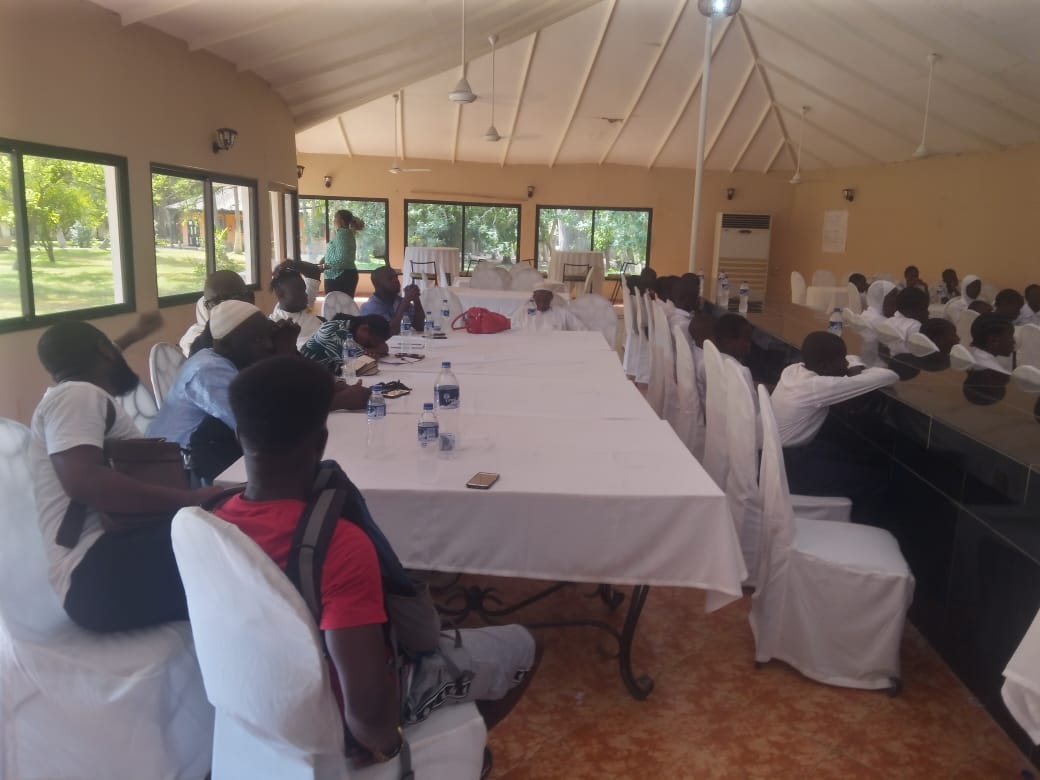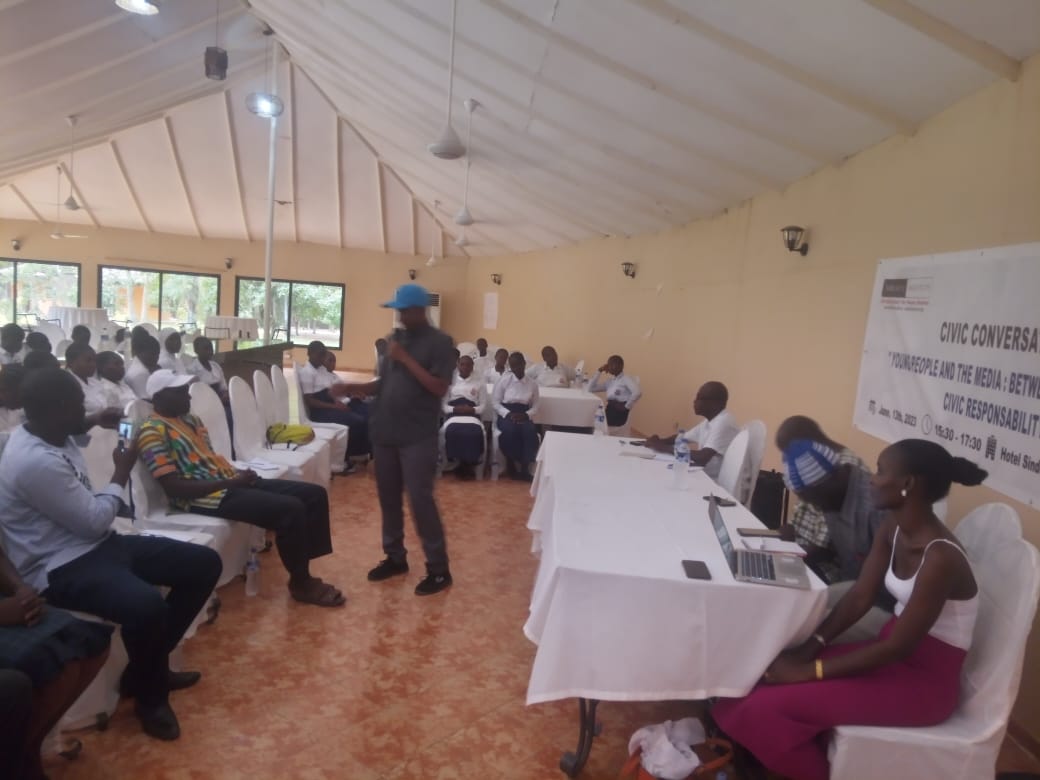By: Alpha Jallow
Recently, Timbuktu Institute (The African Center for Peace Studies), in collaboration with Institut Francais in Dakar, held a civic conversation for young and vulnerable groups on the theme, ”YOUTH AND THE MEDIA: BETWEEN COMMITMENT AND CIVIC RESPONSIBILITY.
The forum was held at Kanilai Village, West Coast Region, the Gambia, brought together Students and Teachers from St. Antony’s Basic Cycle School, members of the media and the surrounding Villagers.
The forum sensitizes students to social media’s negative and positive academic impacts. Social media can benefit students’ education in terms of research, but it can also negatively affect them by distracting them, disrupting their day to day activities, spreading rumors, unrealistic views of other people’s lives but also to some extent, it could lead to vulnerable groups fallen prey to extremist and radical groups operating in the sub-region.
Adji Awa Samb, Head of Cooperation and Regional Projects at Timbuktu Institute, said it is necessary to sensitize students because they are vulnerable and have no knowledge of cyber security.
She told the forum that unregulated internet usage could be dangerous for young people because scammers do not distinguish between young and old.
“I am delighted to have you all here. This shows that you are interested in the topic. Do not allow yourself to be distracted by social activities. Stay away from it as much as possible, but if you cannot, please use it wisely. You are all young and have a future to build. Take your education seriously, study hard and do research and always be open to your parents and teachers for discussions on issues that affect you and your education,” she emphasized.
Momodou Lamin Jaiteh, Kaba Communication’s manager, calls for constructive internet use. He urged the students to be aware of misinformation and disinformation and its dangers to society. He emphasized on the different roles of traditional media and the new media (Social media). Mr. Jaiteh said in the era of the new media, everyone is a Journalist whereas in the traditional media, there are rules and regulations known as gatekeepers.
“In a democracy, you need the information to make informed choices, but you should not allow yourself to spread false news,” he added.
Gallow Ceesay, a Teacher at St Anthony’s Basic Cycle School, said the interface could have been better than now, saying social media consumes students’ time.
He warned students to be aware of dirty websites, scammers, and imposters on the internet while encouraging them to always scrutinize information before sharing and desist from sharing misinformation and disinformation.
“Always compare the information with your teachers and be adaptive and conscious of analyzing posts,” he advised them.
Ousman Kujabi, Village Development Committee Chairman of Kanilai, also advised the students to use the internet wisely as it can improve their quest for knowledge
He said young people need to be counseled, thus calling on parents to monitor their children’s online activities.
Alpha Jallow, the Communication and Media Consultant for Timbuktu Institute, said their engagement with the students on youth access to the internet is because some of them can be brainwashed by individuals or organizations who might be working outside The Gambia by manipulating them in exchange for something.
“We believe if we start sensitizing them now on these issues, there is a possibility that they will not fall as victims.”
One participant intimated to me that this kind of sensitization campaign on the usage of social media will go along way in helping youths and other vulnerable groups to harness more knowledge and also differentiate what is “Good news and Fake news”.
The Regional Director of Timbuktu Institute, the African Center for Peace studies Dr. Bakary Sambe who has not attended the forum in Gambia due to other engagements, expressed delight and thanked all the participants for a very successful event. He however promised to organise more events in The Gambia in the near future.
The seminar concluded with interactive discussions with students as well as contributions from stakeholders.

